The challenge of sustainability is an intrinsic part of the development model that we will implement in forthcoming years.
Edison has embraced this challenge and is doing its part to achieve the 17 Sustainable Development Goals that the UN announced in September 2015 to guide its global agenda until 2030, seeking to meet the most important emergencies of our time, like hunger, inequality, poverty and climate change.
Through individual projects and operations (including process activities), Edison actively pursues all the SDGs. Some are more closely related to the nature of its business and its operating approach, and it is precisely on these goals that Edison devotes the most attention.
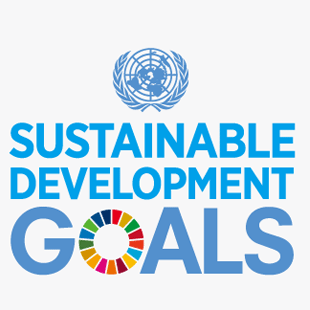
EDISON COMMITMENTS
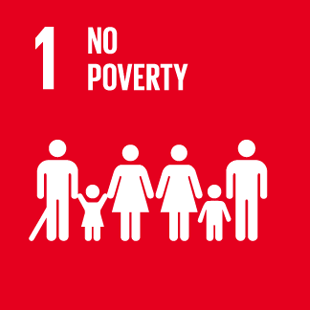 End poverty in all its forms everywhere
End poverty in all its forms everywhere
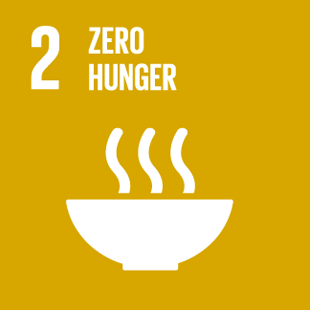 End hunger, achieve food security and improved nutrition and promote sustainable
agriculture
End hunger, achieve food security and improved nutrition and promote sustainable
agriculture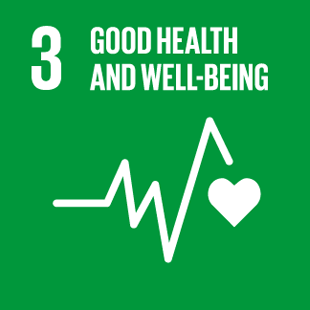 Ensure healthy lives and promote well-being for all at all ages
Ensure healthy lives and promote well-being for all at all agesEdison is committed to ensuring health and wellbeing of its collaborators both internal and external, of partners and
communities where it operates, with the aim to reduce accidents and minimise negative impacts.
Edison promotes healthy lifestyles.
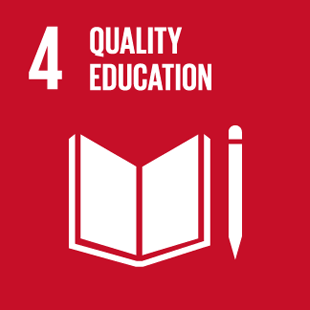 Ensure inclusive and equitable quality education and promote lifelong learning opportunities for all
Ensure inclusive and equitable quality education and promote lifelong learning opportunities for allRenewable energies and energy efficiency, the reuse and recycling of materials, a sharing economy and sustainable lifestyles are the main themes on which Edison has decided to focus as it accompanies a generation of young people (and young entrepreneurs) in a more informed way to help them meet the challenges of the world to come.
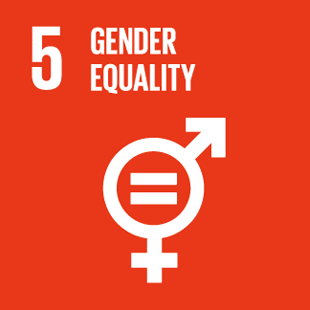 Achieve gender equality and
empower all women and girls
Achieve gender equality and
empower all women and girlsEdison is committed to overcoming all gender and other differences, with the goal of attaining the greatest possible level of inclusion among its employees.
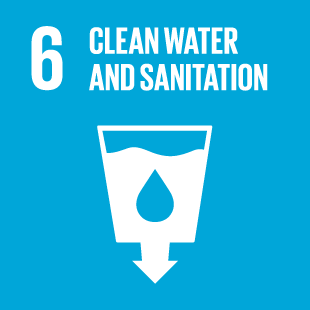 Ensure availability and sustainable management of water and sanitation for all
Ensure availability and sustainable management of water and sanitation for allWater is one of the most precious resources on the planet today: Edison’s commitment is to keep attention focused on the efficient and rational use of water, helping to protect and safeguard it.
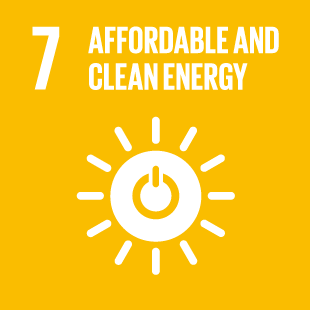 Ensure access to affordable, reliable, sustainable and modern energy for all
Ensure access to affordable, reliable, sustainable and modern energy for allEdison is committed to supporting families and communities near its plants, helping to make access to energy an increasingly universal right. It has set the ambitious goal of increasing energy production from renewable sources to 40% of its production by 2030.
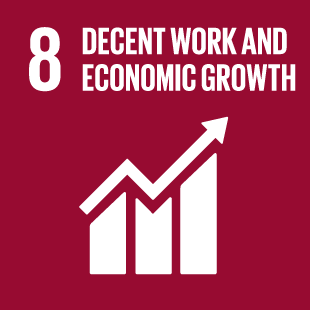 Promote sustained, inclusive and sustainable economic
growth, full and productive employment and decent work for all
Promote sustained, inclusive and sustainable economic
growth, full and productive employment and decent work for allThe challenge of decoupling economic growth and environment deterioration and to promote projects for sustainable development is paramount for Edison, focusing on energy saving and low emission projects. Edison promotes economic growth and entrepreneurship sharing its knowledge throughout all the supply chain and with communities where it operates.
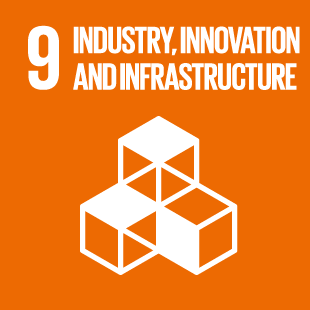 Build resilient infrastructure, promote inclusive and
sustainable industrialization and foster innovation
Build resilient infrastructure, promote inclusive and
sustainable industrialization and foster innovationEdison, since its creation, have realised infrastructures which have contribute to progress and industrialization of the country. Even today with a pipeline of new projects of renewables, energy efficiency and small scale LNG, Edison wants to contribute to sustainable innovation of the sector.
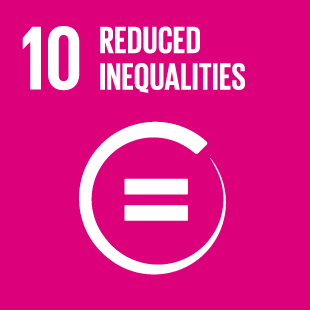 Reduce inequality within and among countries
Reduce inequality within and among countries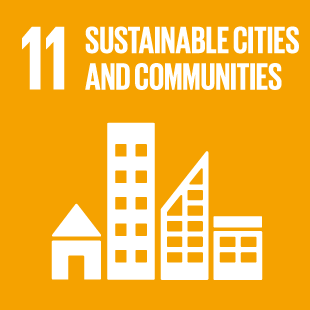 Make cities and human settlements inclusive, safe, resilient and sustainable
Make cities and human settlements inclusive, safe, resilient and sustainableEver smarter cities with a lower environmental impact: Edison has developed energy efficiency solutions and services for both customers and companies.
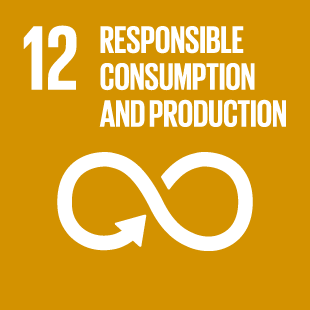 Ensure sustainable consumption and production patterns
Ensure sustainable consumption and production patternsEdison is committed to raising awareness of more conscious energy use, and this includes unconventional means like music and film, to reach an ever greater number of people and increase the effectiveness of its actions.
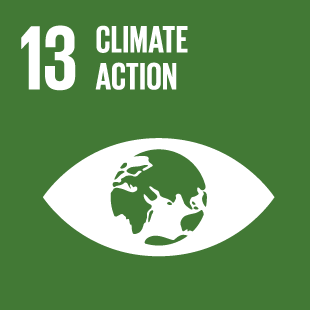 Take urgent action to combat climate change and its impacts
Take urgent action to combat climate change and its impactsEdison is active in key national and international contexts to promote the debate on climate change. This commitment has taken tangible shape in its strategic approach to business management and in awareness campaigns with its stakeholders.
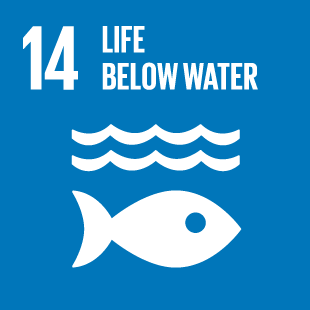 Conserve and sustainably use the oceans, seas and marine resources for sustainable development
Conserve and sustainably use the oceans, seas and marine resources for sustainable developmentEdison’s approach to protecting biodiversity is proactive and focused on generating a positive effect. It is not limited to merely reducing the impacts of its operations on the ecosystem.
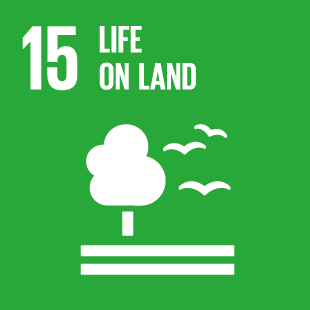 Protect, restore and promote
sustainable use of terrestrial ecosystems, sustainably manage forests, combat desertification, and halt and reverse land degradation and halt biodiversity loss
Protect, restore and promote
sustainable use of terrestrial ecosystems, sustainably manage forests, combat desertification, and halt and reverse land degradation and halt biodiversity lossEdison’s approach to protecting biodiversity is proactive and focused on generating a positive effect. It is not limited to merely reducing the impacts of its operations on the ecosystem.
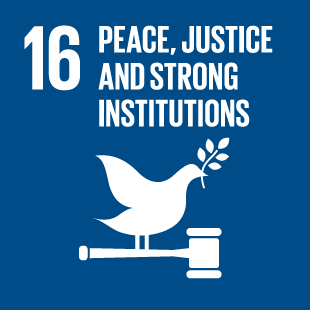 Promote peaceful and inclusive societies for sustainable development, provide access to justice for all and build
effective, accountable and inclusive institutions at all levels
Promote peaceful and inclusive societies for sustainable development, provide access to justice for all and build
effective, accountable and inclusive institutions at all levels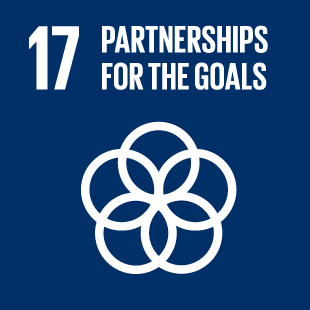 Strengthen the means of implementation and revitalize the Global Partnership for Sustainable Development
Strengthen the means of implementation and revitalize the Global Partnership for Sustainable DevelopmentEdison is active in important multistakeholder contexts to work on innovative and concrete answers to sustainable development challenges; a real network that aims to promote the debate on key issues sharing best practices.
Networks for change
Edison is active in important multi-stakeholder groups and organisations seeking tangible, innovative answers to the challenges of sustainable development. These are genuine networks for change, fuelling the debate on the most crucial issues and promoting discussion, sharing best practices.
The main networks in which Edison participates are:
- the UN Global Compact and Fondazione Global Compact Italia, of which Edison is a founding member. The Global Compact consists of more than 10,000 companies worldwide committed to promoting a more sustainable economy.
- IPIECA (International Petroleum Industry Environmental Conservation Association), of which Edison is a member and on the executive committee. It oversees the environmental and social aspects of the oil & gas industry.
- CSR Manager Network Italia, a network of sustainability professionals involved in various organisations.
- Fondazione Sodalitas, of which Edison is a founding member. It is a foundation made up of over 90 companies and promotes sustainability and social responsibility in Italy.
- The Centre for Business Culture, a cultural association established by the Milan Chamber of Commerce to make the most of companies’ historical heritage by, among other things, setting up local archives. It holds the photography archives of Edison, which is a member of the association’s Board of Directors.
- RES4MED, founded in 2012, which promotes renewable energy solutions in the Mediterranean area with a specific focus on North Africa, the Balkans and the Middle East.
- OME (Observatoire Méditerranéen de l’Energie), founded in 1988, which brings together the largest energy companies in 14 Mediterranean countries. In 2016, OME sponsored a number of studies and initiatives on energy transition in the Mediterranean area, which were presented during COP 22 in Marrakesh. OME has also continued its collaboration with the EuroMed energy platforms endorsed by the Union for the Mediterranean (UfM), as both stakeholder and Secretary of the natural gas platform, acting as a neutral mediator in the discussion of issues concerning the gas market in the Euro-Mediterranean area.
Edison chairs the National Committee of the World Energy Council Italia. WEC is an international organisation bringing together over 90 countries and is accredited with the United Nations.
Edison contributes to energy studies and research and the organisation of meetings and seminars and also supports partnerships with international institutions and organisations. In 2016, it participated in the World Energy Congress in Istanbul, Turkey where it was announced that Milan would host the WEC’s 2018 Executive Committee meeting. Within WEC, Edison participates in the Trilemma Study Group, the Rules of Trade & Investment Group and the Future Energy Leaders program (FEL-100). It has also coordinated the Italian section of the Europe Task Force created at the World Energy Congress in Daegu (South Korea) in 2013 to position WEC on issues and with EU institutions. Lastly, Edison coordinates the Market Design Task Force.
Since the end of the 1990s, Edison has forged increasingly important relationships with small and medium companies (SME) in Italy, local economies and industrial districts. Fondazione Edison has become a place of open, active dialogue with experts and all players in this economy, through scientific research and the study of local production systems, exploring socio-economic, cultural and civil aspects and analysing the relationship between SMEs and large companies, local communities and the development of local areas.
The Foundation promotes studies, research, publications and events. It encourages partnerships with research entities and institutes, foundations, associations, businesses and individuals, and sponsors initiatives that are consistent with the purposes stated in its by-laws.
There are currently 27 active members (sponsor members and ordinary members) consisting of Confindustria’s trade and local associations representing key sectors and districts in the Made in Italy economy.
Three important books were published in 2016:
- “The Pillars of the Italian Economy. Manufacturing, Food & Wine, Tourism” by M. Fortis (Springer). This book contains a detailed analysis of the Italian economy’s key sectors, with a focus on those in which it excels, such as packaging, pharmaceutical production, food and wine and tourism.
- “Riforme, ripresa, rilancio. Europa e Italia” by M. Fortis and A. Quadrio Curzio, published by Mulino as part of Fondazione Edison’s own series. Dealing with reform, recovery and relaunch in Europe and Italy, this is the fifth book in the series since the start of the economic crisis and covers, through the authors’ articles in the “Il Sole 24 Ore” and “Il Messaggero” newspapers, salient events from April 2014 to the start of September 2015.
- “Conti pubblici, credito, competitività. L’Italia a una svolta?” by M. Fortis, also published by Mulino as part of Fondazione Edison’s own series. Dealing with the public finances, credit and competitiveness in Italy, it is the sixth book in the series about the economy since the start of the economic crisis. The author explores, through his articles printed in the “Il Sole 24 Ore” and “Il Messaggero” newspapers from December 2015 to May 2106, three concerns that dominated economic debate in the first half of 2016: trends in the public finances, the changes in the credit sector and competitiveness.
Thirty-three issues of statistic reports were published on economic topics and the updating of the Fortis-Corradini index on Italian excellence in international trade continued. Furthermore, the “Rivista di Economia Politica. Journal of Analytical and Institutional Economics” continued to be published, with Fondazione Edison’s sponsorship.
Four conferences were also organised in 2016, some of which independently and others in partnership with other bodies and associations. In March, the book entitled “Riforme, Ripresa, Rilancio. Europa e Italia” was presented in Milan with the participation of the authors and Franco Bassanini and Antonio Calabrò. In April, a book in the Fondazione Edison series was presented at the University of Catania, “L’Economia reale del Mezzogiorno” (The real economy of the South), published in 2014. In October, the annual meeting in collaboration with the Accademia Nazionale dei Lincei was held in Rome. This year it was about economic development, technology and industry, for an Italo-European policy. Lastly, in November, the book “Conti pubblici, credito, competitività” was presented in Rome with the participation of the authors, the Italian Minister of the Economy and Finance Pier Carlo Padoan and the Chairman of Intesa San Paolo Gian Maria Gros-Pietro.
Fondazione Edison intensified its commitment by partnering with other foundations and institutions like the Aspen Institute Italia, Ambrosetti European House, Anima, Unindustria Bologna, Symbola, Associazione Industriale Bresciana and Gea.
In addition, it developed sector focus groups on the competitiveness of the following sectors: metal working, agro/food, pharmaceuticals, wood/furnishings and shipping.
Fondazione Edison was named the scientific partner in the “La nautica in cifre” study on shipping figures, with the Ucina partners. Research was also conducted on behalf of the industrialists’ association of Novara, Vercelli and Valsesia Confindustria (the confederation of industrial companies) and Alessandria Confindustria on the economic importance of the Novara, Vercelli and Alessandria provinces nationally and regionally.
